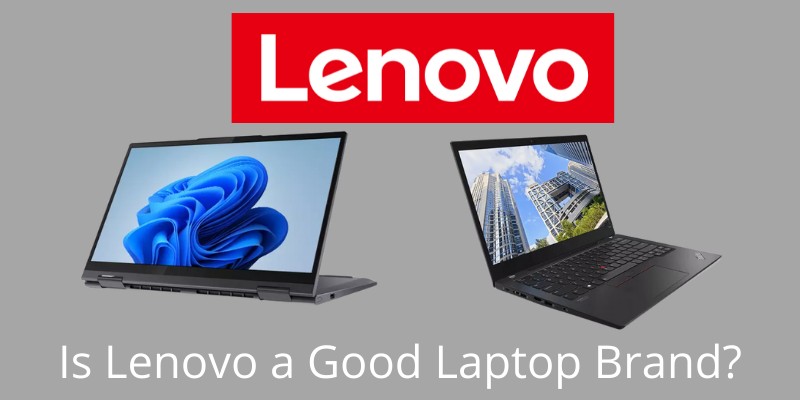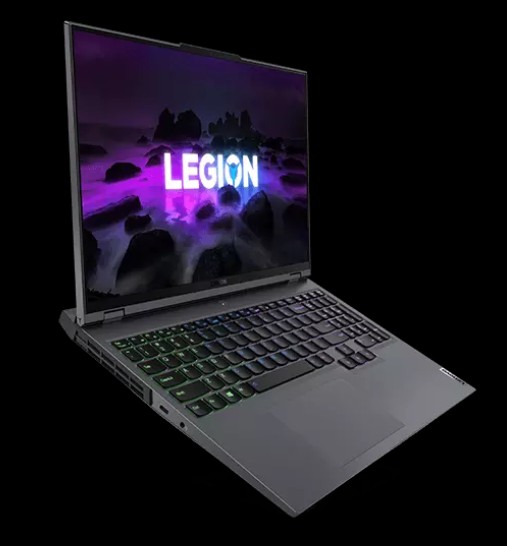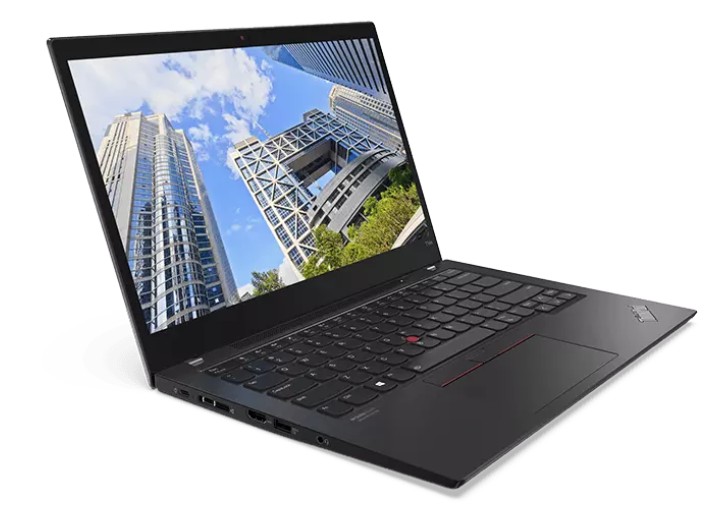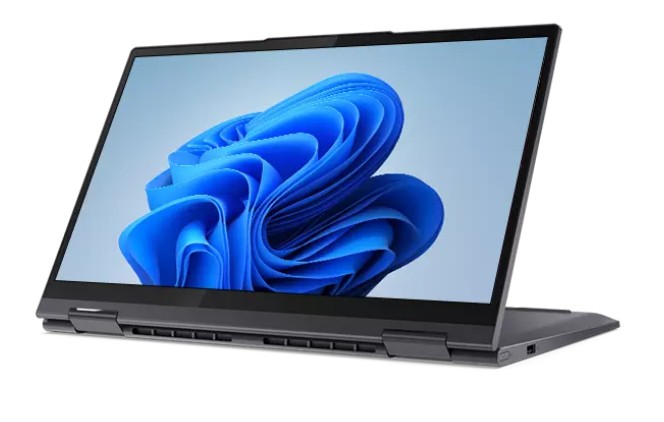While Lenovo is recognized today as one of the biggest computer brands in the world, that wasn’t always the case. When it was initially founded in 1984, this Beijing-based company focused their attention on manufacturing televisions and then digital watches.

But a pivot towards developing personal computers in 1990 saved the company from potential insolvency and rapidly transformed them into one of the biggest computer providers in China.
Six years after their transition to PC design (in 1996), Lenovo released their first laptop to the Chinese market.
But while Lenovo continued to be the dominant name in personal computing in China into the beginning of the 21st century, they had aspirations to be an international name.
They managed to achieve that broad reach in 2005 by buying out IBM’s PC division.
Today, it’s virtually impossible to talk about the PC or laptop market without mentioning Lenovo.
Computers account for roughly 80% of the company’s revenue — and while the acquisition of IBM’s venerable ThinkPad brand definitely helped bolster Lenovo’s international recognition, they maintain one of the broadest catalogs of laptop offerings in the market.
Whether you’re a gamer, a creative, a student, or a business professional, there’s probably a competitive Lenovo laptop that’s worth your time.
The quick answer whether Lenovo is a good laptop brand is yes, Lenovo is actually one of the best value for money laptop manufacturers out there.
The sheer scale of the company’s catalog means that quality can vary from one model to the next, but Lenovo consistently delivers some of the best value in the market.
If you’re considering purchasing a Lenovo laptop, in this article we’ll try to answer the question that many people have: Is Lenovo a good laptop brand?
The Lenovo Laptop Lines
Apart from the ThinkPad — which has a reputation as one of the first and arguably the most successful laptop in history — each of Lenovo’s five laptop lines was developed after the acquisition of IBM in 2005.
Each also is targeted towards a specific user market. Here’s what each brings to the table.
IdeaPad
First announced two years after the acquisition of IBM’s PC division, the IdeaPad was meant to leverage the ubiquity of the ThinkPad name to roll out a brand of laptops targeted at the average consumer.
The IdeaPad line is still going strong, and you’ll find a broad range of IdeaPad models that range from bargain basement laptops designed for basic browsing and entertainment to relatively beefy machines that can handle light gaming and even video editing.
The IdeaPad 100, 300, 500, and 700 series escalate in both specs and price to make identifying the model in your price range easier.
The line has been so successful that Lenovo has even introduced an IdeaPad Gaming line that helps bridge the gap between budget models and the more dedicated Legion series.
Legion
It wasn’t until the early 2010s that manufacturing and technology made gaming laptops a viable option, but Lenovo made one of the most convincing cases for gaming on the go with the release of the first Legion laptop in 2017.

The Legion Y, 5 and 7 series represent three different tiers of price and performance, but the most powerful model at any given time is likely to cost you around two grand.
Regardless of the specs, the latest generation of Legion laptops combine AMD Ryzen 5000 CPUs with Nvidia RTX GPUs. It’s an unconventional but surprisingly effective choice.
Another thing they share in common are their phenomenally responsive keyboards which are designed for the taxing demands of pro gaming.
The Legion line of gaming laptops are also used for business purposes from power users that require high-end specs.
ThinkBook
The ThinkBook was initially designed for a specific market: small business owners who need something more powerful than the consumer-oriented IdeaPad but not as feature rich and expensive as the ThinkPad.
The first generation of ThinkBook was introduced in 2019, and they were accompanied by a series of tablets with the same branding — a move that further emphasized their role as a more mobile alternative for freelancers and entrepreneurs.
But the announcement of the third generation in 2022 signals a radical change in what the ThinkBook represents.
While these new laptops are quite thin and lightweight, they sport a 17-inch screen that puts them in sharp relief to the portable ThinkBooks or yesteryear.
But the most dramatic change is the inclusion of a second eight-inch screen positioned alongside the keyboard.
It’s not the first dual-screen device targeted at professionals, but it’s easily one of the most affordable to hit the market.
ThinkPad

The ThinkPad is one of the most well-regarded business laptops in history — and that has as much to do with their durability and longevity than the actual specs inside.
Part of that longevity comes down to how easily a user could upgrade the specs in a ThinkPad, although these DIY operations became less accessible.
Combine that with an exceptional keyboard, a one-of-a-kind trackpad, and top shelf battery life, and you’re left with a laptop that can handle the demands of serious professionals.
The ThinkPad first rolled onto consumer shelves in 1991, and the line has expanded significantly in the intervening decades.
There are ThinkPads designed for classrooms, creative professionals, and even particularly rugged environments.
But since its release in 2012, one ThinkPad has remained a consistent favorite among reviewers and businesspeople.
The ThinkPad X1 Carbon does just about everything right while remaining both lean and lightweight.
Yoga

The Yoga represents Lenovo’s entry into the laptop two-in-one market, and it has managed to maintain relevant since its initial release due to its ability to continually fold in new features and more powerful specs without compromising the strong fundamentals at the heart of the experience.
Those fundamentals include a durable chassis combined with a well-designed hinge that makes shifting between the viewing modes joyous and seamless.
One trademark feature is the fact that the hinge can also function as a dedicated sound bar.
New models have folded in quality of life features like fingerprint readers and webcam covers, and they’ve successively stayed ahead of the curve in terms of internal specs.
While it was initially released in 2012 as a spinoff of the IdeaPad series, it’s since become its own line entirely.
Lenovo previously had another convertible line known as the Flex, but it appears to have been quietly discontinued as the popularity of the Yoga has grown.
Lenovo Chromebooks
While they have yet to earn themselves a unique brand name or sense of identity, Lenovo has been steadily releasing a decently broad selection of Chromebooks since 2011.
Like with any Chromebook, each uses a converted version of the Chrome browser in place of a more traditional operating system.
Lenovo’s selection is diverse and covers everything from budget models targeted at classroom settings to flexible convertibles to security-oriented models designed to meet the needs of business professionals.
Their form factor and price can vary wildly too. You can snag a Lenovo Chromebook at retail for as little as $300 or as much as $700, and they can take the form of everything from convertible tablets with attachable keyboards to 15-inch full-sized laptops ideal for watching movies and multitasking.
Lenovo Tech Support
Lenovo’s customer service experience is a bit of a paradox. While they have one of the best customer support sites in the business, their call centers have a reputation for being hard to reach.
But as long as you have internet access, that lack of human support should only rarely be an issue.
The Lenovo Service Bridge app can automatically provide all of the important information about a laptop like model and serial number into the Lenovo support database to direct you to the specific data about your machine and targeted answers to questions.
The information here really is authoritative — and you can run diagnostics, check out your warranty terms, and dig through a selection of curated articles to burrow to the heart of the problem.
If you don’t mind doing a little self-diagnosis yourself to resolve a problem, Lenovo has some of the best resources available.
But you might need to wait a little longer if you need someone to assist you. Fortunately, Lenovo offers a live chat option in addition to phone support.
And despite issues with promptness from customer support, the team is generally knowledgeable and can offer effective solutions to most problems you have. That’s not surprising given how good the available resources for Lenovo laptops are.
Lenovo Warranty and Coverage
As the inheritor to the ThinkPad, it’s only natural that Lenovo’s customer warranty policies are most closely tailored to the needs of business clients, but the company has made great strides in the past few years to better serve the needs of the home consumer market.
All Lenovo laptops come with a standard warranty that offers 12 months of protection, though commercial customers can receive up to three times that standard.
Unfortunately, private consumers also have to foot the bill for shipping. The base warranty options are relatively lean, but there are a number of add-ons that can provide you with peace of mind.
These include cloud storage for your data, accidental protection, and extended protection for your battery. Lenovo also offers warranty extensions, international customer service, and the ability to upgrade to a premier customer service plan.
Pros and Cons of Lenovo Laptops
Pros
- Pricing: In terms of pure value, it’s hard to beat a Lenovo laptop. That’s true of everything from their budget models to their high end gaming and professional laptops. And the truly extensive range of models allows you to find a model that’s targeted exactly to the price point you’re comfortable with.
- Innovative Design: Just because they’re comfortably priced doesn’t mean that Lenovo plays it safe with their products. From the confident design choices of the Yoga 2-in-1 to the decision to add a second screen to the bold second screen of the new ThinkBook to the play of buying out IBM’s PC division, Lenovo has never hesitated to make aggressive and thoughtful choices.
- Automated Support: If you’re the type of person who likes to do your own diagnosis and repairs, you’ll be in heaven with Lenovo. Their online resources are extensive, thorough, and tailored to your specific machine. And Lenovo Service Bridge smoothly integrates your laptop’s data with the information database.
Cons
- Live Customer Support: While Lenovo offers email, phone, and chat support with live agents, the actual execution is less praiseworthy than their automated systems. While the customer service technicians are normally precise and knowledgeable, it can take a minute to get a response.
- Durability: The ThinkPad is still one of the most durable work laptops in the game, but the rest of Lenovo’s catalog can be a bit more inconsistent. You may want to treat Lenovo laptops with care, as they use less reliable materials to keep prices down.
- Graphics: Lenovo’s initial offering of laptops were focused on business consumers, so it’s only natural that graphics wouldn’t be a top priority. That’s still the case with a lot of Lenovo laptops, but it’s also beginning to change. The impressive performance of AMD’s latest generation of graphics cards in particular has helped boost Lenovo’s overall graphics performance, and the Legion line continues to impress.
Who are Lenovo’s Biggest Competitors?
Lenovo isn’t the biggest laptop manufacturer around, but they’re consistently jockeying for position. Hewlett-Packard and Lenovo are generally neck and neck for the top spot most years. Both consistently hold above 20% of the market. The rest of the laptop market is split between Dell, Acer, ASUS, and Apple.
Are Lenovo Laptops Reliable?
As with any laptop brand, the reliability of Lenovo laptops will vary from one model to another. Their ThinkPad is recognized as one of the most durable business laptops available today, and the cost-benefit ratio of Lenovo laptops are generally great.
Are Lenovo Laptops Made in China?
Lenovo is a Chinese company based out of Beijing, and many of their laptops are actually made in China. But as an international brand, Lenovo also has manufacturing plants in Mexico, the United States, Japan, Brazil, and Germany.
Leave a Reply